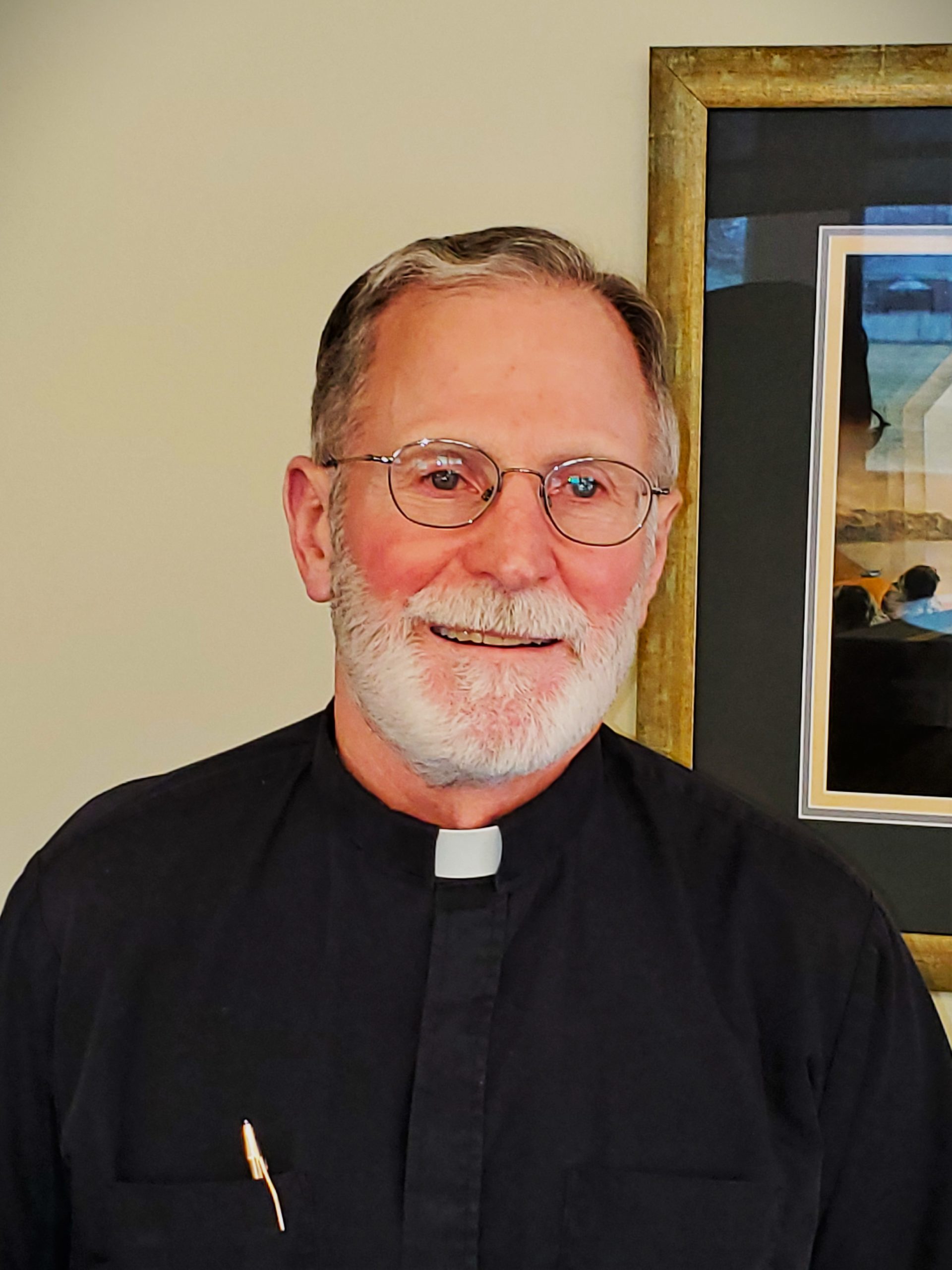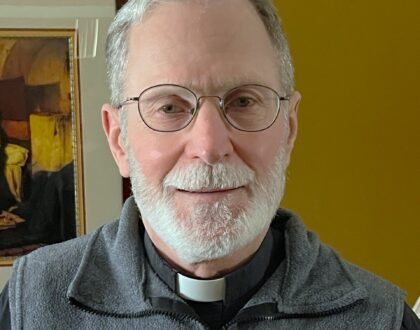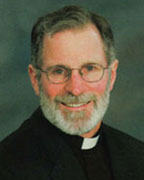Homily, February 19, 2023

From The Pastor
A picture will leave a very different impression depending on how it is framed. A dark frame surrounding the early morning light of a sunrise will create a different tone than a brighter frame. The same is true of how we hear things. Tone and context make a big difference. We have all heard the phrase, ‘Its not what you say, but how you say it.’
How do you say or put a frame around, “…love your enemies and pray for those who persecute you?” In the frame and tone of our culture today the phrase is quickly dismissed as ridiculous and out of touch with social reality. If someone takes your jacket, how do you say to them; ‘Here, take my sweater too.’ Pretty much the same reaction, right? Easily dismissed as unreal.
Let’s try a new frame that may more effectively reveal the wisdom of the words. Your life is framed by your profession of faith as a Christian. In the frame of faith, with a professed love for God and love of neighbor, God directs us in the first reading: …”Be holy, for I, the Lord your God, am holy.” As people in the Spirit, this should have an impact on our spiritual sensibility. In the mind of our culture, the phrase would be ignored. However, the believer knows otherwise. We may not feel holy, but any half-conscious believer knows we are called to be holy because in Christ we share the Divine life of God.
St. Paul strengthens the frame further, saying: “Do you not know that you are a temple of God, and the Spirit of God dwells in you?” We have all heard these words and they should be a steady frame of how we see ourselves in God and God in us. I do not always actively feel this spiritual truth, but I hold it deeply as a personal identity. The call to holiness and the acceptance of ourselves as a dwelling place of God serves as an inner ownership of who we are as believers. It is the frame through which we see ourselves in the world, and how the world is to see us. If we do not hold ourselves in this frame of life, how is Christ to be known or seen in us?
If we are living in the Christian frame of holiness as a dwelling place of the Holy Spirit, the call to love our enemies is heard quite differently. It calls us to move beyond the frame of human wisdom, to a Divine one. Human wisdom is largely characterized by getting ahead, having more than the other guy, and staying ahead of an enemy. Divine wisdom is characterized by humility, surrender, and other centered self-giving. Completely different frames, right?
Jesus is calling us to practice the model of his own example. In the end, Jesus humbly surrendered his life on the Cross out of self-giving love. It was the only way to prove that love is stronger than evil, sin, and death. In the Resurrection, love wins. Each of us is a beneficiary of this radical act of self-surrender. Perhaps the most radical aspect of the Cross is that it was offered to all, friends and enemies alike. Jesus fulfills the Divine wisdom in his willingness to heal and forgive, casting no one off as an enemy. The human way tends to operate from an ability to conquer and kill rather than to reconcile.
How do we get from here to there? How do we love our enemies and peacefully pray for our persecutors? We will only be able to love others to the degree that we love ourselves. We are all aware that self-love is not automatic. The human experience is a wounded one. The pain of our hurt causes us to create walls, defenses, and resistance against our vulnerabilities. This leads to moods of competition, division, and a we-they stance against the world. People are labeled as enemies or friends while those in the middle often become invisible.
Growing in self-love comes from a secure trust in the acceptance of God’s love for us. Self-love matures into the freedom to be open to the needs and concerns of others out of empathy and compassion. Mature love by nature is other centered. Human love is never perfect this side of heaven. We are all sinners trying to live lovingly in a wounded sinful world. Tensions will inevitably arise. Love yields to compromise rather than competition. This is the meaning of the call to be perfect. Perfection is necessary in math, science, and medicine. There is no such thing as a perfect human being. Perfection in scripture means wholeness or completion. To be whole and complete is to persevere to the end with faith and love. Jesus was perfect in his mission and identity in the world as he brought to completion the Father’s will in perfect surrender to death on the Cross.
It was hard to be Jesus. It is hard to imitate Jesus in the world today. Remember your frame. You are holy. You belong to God. You are in God and God is in you. You are a temple of God’s dwelling in the world. That frame will never change. It may get smudged and gritty, but God will never hold you as an enemy. God’s love for you is the ground and foundation of your self-love. This is the frame that teaches us to love our enemies and pray for those who hurt us. Practice makes perfect.
Father John Esper
Recent Sermons

Homily, March 30, 2025
March 27, 2025

Homily, March 23, 2025
March 20, 2025

Homily, March 16, 2025
March 11, 2025

